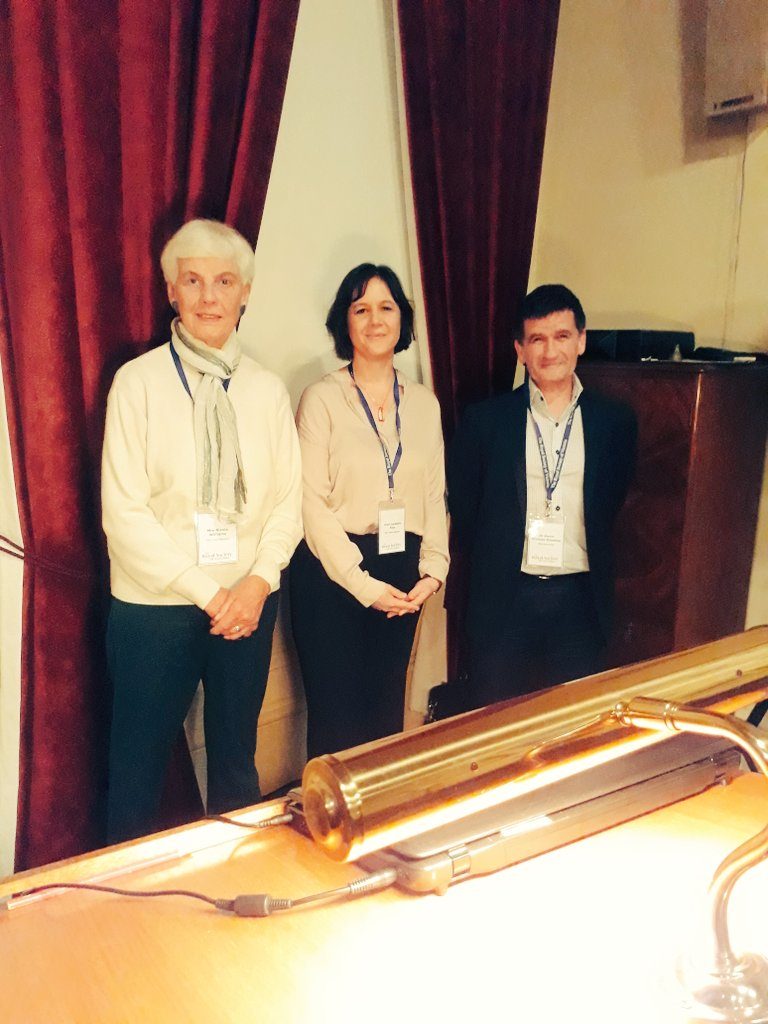Testosterone Rex – An Evening with Cordelia Fine
This article follows a presentation to the Royal Society of Victoria by Professor Cordelia Fine on 24 May, 2018 titled “Testosterone Rex: Death of a Legend?”
Catriona Nguyen-Robertson and Scott Reddiex,
Science Communications Officers, The Royal Society of Victoria
“Biological sex can capture our attention…we are spellbound by it; keep it constantly in the spotlight”
– Cordelia Fine, Testosterone Rex.
Biological sex is one of the primary ways in which we divide the social world. When parents are expecting, one of the first things we want to know about their unborn child is whether it’s a boy or girl. Sex is also one of the first characteristics we notice about the people we meet, and one of the traits we’re least likely to forget.
 Cordelia Fine is a professor in the History and Philosophy of Science at The University of Melbourne. After completing a Masters of Philosophy in Criminology at Cambridge University and a Doctor of Philosophy in Psychology at University College London, she became interested in social cognition, neuroscience, and debunking the popular myths of sex differences. While biological sex often refers not only to two kinds of reproductive systems but also “two kinds of people”, Professor Fine believes that the distinction between XY males and XX females may not be as clear as people believe.
Cordelia Fine is a professor in the History and Philosophy of Science at The University of Melbourne. After completing a Masters of Philosophy in Criminology at Cambridge University and a Doctor of Philosophy in Psychology at University College London, she became interested in social cognition, neuroscience, and debunking the popular myths of sex differences. While biological sex often refers not only to two kinds of reproductive systems but also “two kinds of people”, Professor Fine believes that the distinction between XY males and XX females may not be as clear as people believe.
It has long been a popular perception that risk-taking and status-seeking have evolved as masculine traits, as there is less selective pressure for women to develop a “competitive edge” and to take risks. Professor Fine discussed the roles of men and women in society, particularly how their behaviour contributes towards “reproductive return” – their passing on genes to offspring and continuing their ancestral line. Scholars have previously reported on links between testosterone levels and risk-taking[i], their argument being that where men evolved a promiscuous streak to be competitive in order to acquire or defend their status and sexual opportunities, the female strategy has been more focused on ensuring they have enough resources to care for their offspring. As Professor Fine points out, however, women can be risk-takers in their own right. Risks that women take may not be those typically classified as “higher-stakes adventure[s]”[ii], however the career sacrifice of taking on part-time work while caring for a family and speaking out about sexual assault, are among many other risks that may go unrecognised. In fact, when measured on an individual level rather than comparing genders on a larger scale, there is no significant difference in risk adversity between the two sexes[iii].
Relative levels of aggression, competition & risk taking behaviours in men & women appear to be a feature of acculturation in comparing patriarchies with matrilineal societies. The presence or otherwise of #testosterone is readily overcome by social context & acquired behaviours.
— RSV (@RoyalSocietyVic) May 24, 2018

Professor Fine also challenged the assumption that testosterone is the sole determinant of behaviours that are considered aggressive and/or masculine. Professor Fine discussed numerous communities for which aggression and competition is observed between members without testosterone – namely females, castrated males[iv]. Futhermore, placing these members on hormone therapy also has little impact. A study of elite athletes, in which blood samples were collected within two hours of completing a major athletic competition and assessed for their levels of testosterone, revealed that 16.5% of male athletes had testosterone levels below the normal reference range[v], suggesting that testosterone doesn’t make much of a difference. Moreover, there are differences between cultures around the world in the aggressive behaviours men and women display, therefore making testosterone less likely to be sole basis of so-called masculinity. Rather, the circumstances we find ourselves in and the ways we adapt to them play a large role in determining behaviour and hormone production. Historically, the bulk of human behavioural endocrinology research has focused on a unidirectional relationship of hormones such as testosterone and oestrogen affecting behaviour, while the bidirectional influence and mutual reinforcement of one’s own behaviour and other environmental influences on behaviour has previously been neglected[vi]. The endocrine system is a contributor to human behaviour and the decision-making process, but testosterone is merely another voice that chimes in.

Professor Fine argues that there are no characteristics that are strictly male or female. Testosterone may affect the brain, body, and behaviour to some extent, but it is by no means “the king nor the kingmaker”. Her prize-winning book signifies the end of “Testosterone Rex” – the idea that one hormone is the sole determinant of dominant behaviour and decision-making – which has reinforced an “unequal status quo” between men and women. Professor Fine encourages us to shift from this idea to apply a more scientific view – with the hope that people will examine evidence rather than blindly following ancestral beliefs.
[i] Herbet, J 2015, Testosterone: Sex, power and the will to win, Oxford University Press, Oxford.
[ii] Alexander, RD 1979, Darwinism and human affairs, University of Washington Press, Seattle, quoted on p.241
[iii] Nelson, JA 2016, ‘Not-So-Strong Evidence for Gender Differences in Risk-Taking’, Feminist Economics, vol.22, no.2, pp.114-142.
[iv] Dixson, AF & Herbert, J 1977, ‘Testosterone, aggressive behaviour and dominance rank in captive adult male Talapoin monkeys’, Physiology and Behaviour, vol.18, no.3, pp. 539-543.
[v] Healy, ML, Gibney K, Pentecost C, Wheeler MJ, Sonksen PH 2014, ‘Endocrine profiles in 693 elite athletes in the postcompetition setting’, Clinical Endocrinology, vol.81, no.2, pp. 295-305.
[vi] van Anders, SM & Watson, NV 2006, ‘Social neuroendocrinology: Effects of social contexts and behaviours on sex steroids in humans’, Human Nature, vol.12, no.2, pp.212-237.






